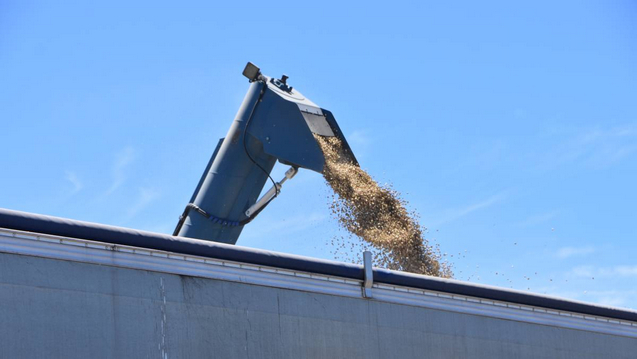
|
|
Australian croppers are doing a great job growing more grain on
less rain but will need to continue to improve to help manage
climate change according to ABARES.
|
This was the sobering take-home message from Australian Bureau of Agricultural and Resource Economics and Sciences senior economist Neal Hughes speaking at last week's ABARES Outlook conference.
In spite of some commentators talking up increased carbon dioxide levels as positive for plant growth, Mr Hughes said in Australia, the increase in temperatures and likely decrease in rainfall, particularly in southern regions, would more than offset any gains.
"The latest modelling and projections show a range of scenarios, varying from 3 per cent drop in rainfall out to 2050 right out to a 21pc drop," Mr Hughes said.
"It is a similar story in terms of temperature, with temperature rises forecast to nearly double under a high emissions scenario compared to if there were lower emissions."
"The majority of the runs, however, show considerable negative effects and that is going to make it tougher, especially relative to conditions prior to 2000."
He said while models regarding rainfall drops varied in parts of Australia in others they were in more agreement.
"For instance, in the WA cropping zone in the south of the state there is reasonably good consensus there will be further declines in winter rainfall which is really important in WA farmers' systems."
"These projected decreases go even further from what we've seen in the past 20 years, so there will need to be further changes to manage that."
Mr Hughes acknowledged there had been significant production gains made, especially in regards to water use efficiency, in the west, but said eventually the law of diminishing returns would hit.
"There has been a lot of improvement, you only have to look at this year's crop and see how much grain was produced from a relatively low rainfall season."
"The adaptations have allowed them to produce quite a good crop despite tough conditions, but ultimately you will hit diminishing returns, especially as you get closer to that frontier of nature and where crops can be viably grown."
However, he said the industry needed to continue to push for new techniques.
"Technology is potentially part of that, we've already seen the role it has had through things like controlled traffic in maintaining yield in the dry."
Other possibilities include a less risky approach to farming, such as returning to mixed farming systems.
"Mixed farming makes sense in the drier part of the cropping zone in allowing farmers to manage their risk."
He also said consolidation within the industry helped farmers manage climate risk.
"The larger farms usually, not always, can manage climate risk better, the smaller farmers with lower baseline profits are more exposed to negative events."
Mr Hughes said the industry was also looking out for some form of transformative change.
"It could be things like carbon farming, or getting paid to increase biodiversity, it could be plantation forestry, it could be renewable energy, it is a space that is by nature difficult to predict and it will depend on outside factors as to what takes off."
Links
- (AU) ABARES Neal Hughes: Climate change scenarios for Australian farms
- (AU) The Five Principles Of Regenerative Farming And How To Apply Them
- (AU) A Bit Rich: Business Groups Want Urgent Climate Action, After Resisting It For 30 Years
- (AU) Climate Crisis: Business, Farming And Environment Leaders Unite To Warn Australia 'Woefully Unprepared'
- (AU) Climate Change-Driven Disasters Making Insurance Premiums Too Dear For Farmers
- (AU) The Surprising Way Renewables Can Help Farmers Cope
- Time for adult conversation on climate
- Climate change adds to forecasting complexity

No comments :
Post a Comment